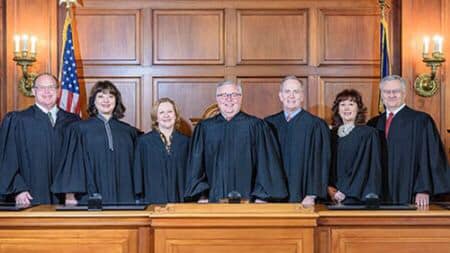
The Brechner Center may be even more excited about the Kentucky Supreme Court opinion in University of Kentucky v The Kernel Press, d/b/a as The Kentucky Kernel than we are — if that's possible!
http://opinions.kycourts.net/sc/2019-SC-0468-DG.pdf
The Court's opinion strikes a fatal blow to secrecy in employee misconduct records, but it does a great deal more. The Court focuses on public agency duties in responding to open records requests in an era when boilerplate agency responses to records requests are the norm. In very strong terms, the Court reminds the University that "a public agency has the obligation to prove that requested documents fit within an exception to the ORA. Under Kentucky law, the University's response to The Kernel's request was required to be 'detailed enough to permit the court to assess its claim and the opposing party to challenge it.' The University failed to meet this requirement."
The opinion also makes clear that a request for "all" records is *not* insufficiently specific, declaring, "The Kernel's request was not improper. ORA requests routinely seek 'all documents pertaining to [subject matter].' The responsibility for identifying responsive records and any applicable exception lies with the receiving public agency, not the requester."
Finally, the Court affirms the role of the Attorney General in conducting first-line review of records disputes, referencing the Court of Appeals' ruling and issuing a less than veiled criticism of UK:
"'The appellate court generally upheld the Attorney General's right to in camera review, observing: 'The [ORA] does not confer subpoena power on the AG. Perhaps the General Assembly assumed state agencies would comply with such requests to further the interest in transparency. If that was the assumption, the University has proven it wrong.'"
The Brechner Center focuses on UK's specious arguments in support of nondisclosure of records relating to public employee misconduct:
"From Kentucky, a breakthrough win for public access to records of university employee misconduct
"After a protracted five-year court battle, records reflecting how state universities do, or don't, discipline employees accused of sexual misconduct are finally accessible to the public. The University of Kentucky sued its own student journalists in 2016 to block disclosure of personnel files reflecting the outcome of sexual harassment investigations against UK professors. The university invoked the familiar excuse -- 'student privacy' -- that is frequently misapplied to records that schools and colleges would prefer to keep secret. In a unanimous decision issued March 25, the Kentucky Supreme Court was having none of it. The court rejected the contention that the Family Educational Rights and Privacy Act, which makes only students' 'education records' confidential, could be strained to apply to records of employee wrongdoing:
"'The FERPA "education record" exclusion was clearly not intended as an "invisibility cloak" that can be used to shield any document that involves or is associated in some way with a student, the approach taken by the University in this case.'
"The court ordered the university to re-review the records requested by the Kentucky Kernel newspaper and to remove only the bare minimum necessary to conceal the identity of student complainants and witnesses. In response to the ruling, Western Kentucky University, which has likewise been suing the student-run College Heights Herald to conceal similar records, agreed to release a tranche of long-withheld documents about Title IX misconduct cases against WKU faculty.
"Meanwhile, a comparable university-versus-journalists lawsuit is playing out in Oregon, where embattled Oregon State University is suing the Associated Press to block release of documents shedding light on an internal investigation into complaints against the university's volleyball coach."



